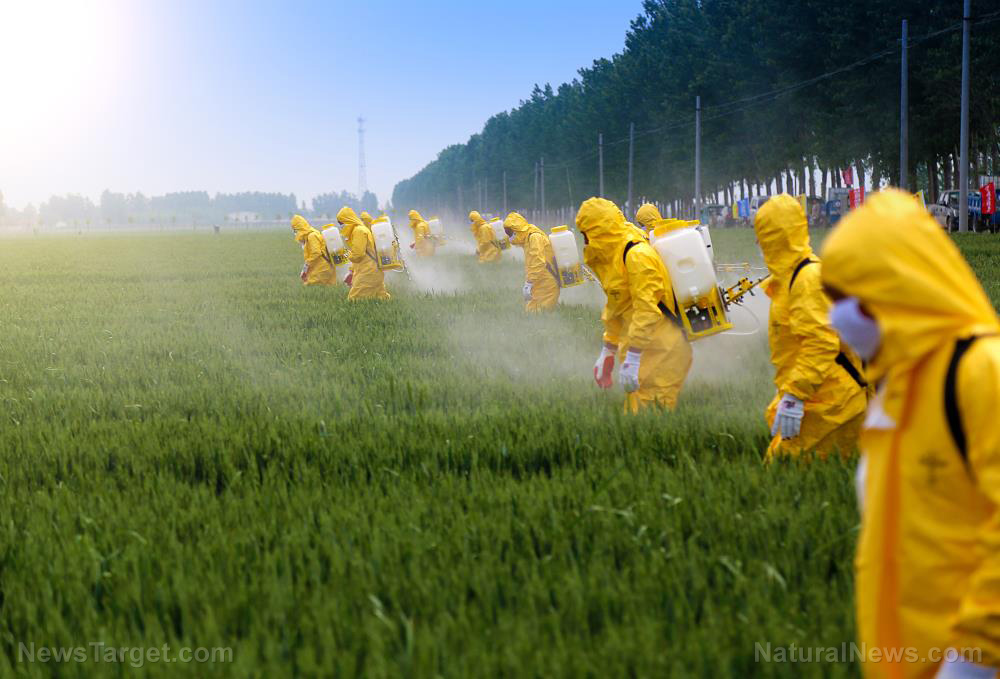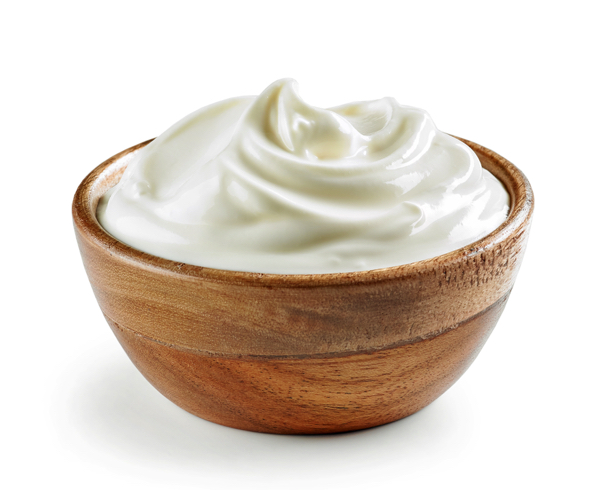DEADLY GLYPHOSATE decimates your cleansing organs, but you can take back control by cleansing with organic foods, superfoods and supplements
08/19/2025 / By S.D. Wells

The Seralini team of scientists tried to warn the world that glyphosate causes horrific cancer tumors of the cleansing organs, when they published their comprehensive study years ago that Monsanto had retracted for no good reasons. Now it’s all coming to the surface again.
For decades, chemical corporations have assured the public that glyphosate—the world’s most widely used herbicide—is safe for humans. A sweeping new scientific review of 42 studies dismantles that claim, linking glyphosate exposure to fatty liver disease, one of today’s fastest-growing chronic health conditions.
- Scientific evidence links glyphosate to liver disease: A review of 42 studies found consistent associations between glyphosate exposure and fatty liver disease, showing higher rates of scarring, liver enzyme abnormalities, and related conditions like diabetes, obesity, and heart disease.
- Widespread contamination fuels health risks: Glyphosate use has tripled in three decades, with residues found in soil, water, crops, and even human urine. Up to 80% of American vegetables test positive for contamination, making avoidance nearly impossible.
- Liver damage mechanisms revealed: Lab studies demonstrate that glyphosate causes oxidative stress, DNA damage, cell death, and inflammation in liver and fat cells—mirroring biopsy findings in fatty liver patients.
- Natural defenses and recovery possible: While regulators downplay risks, individuals can reduce exposure and support liver regeneration by choosing organic foods (especially grains), eating sulfur-rich and colorful produce, consuming fermented foods, and supplementing with liver-supportive nutrients like milk thistle, NAC, and alpha-lipoic acid.
Glyphosate Devastates Liver Health but Your Body Can Fight Back
The analysis uncovered troubling parallels: as glyphosate use tripled over the past 30 years, fatty liver disease cases rose by 50%. Today, nearly one-third of adults worldwide are affected. Six population-based studies found that people with detectable glyphosate levels in their urine consistently showed higher liver fat accumulation, scarring, and elevated enzymes. These individuals also faced higher risks of metabolic syndrome, diabetes, obesity, and cardiovascular disease. The scale of exposure is staggering, with 825 million kilograms of glyphosate sprayed on crops each year. The chemical is now present in soil, water, rain, rivers, and in the urine of people across both rural and urban environments, making avoidance nearly impossible.
Laboratory studies reveal how glyphosate inflicts damage at the cellular level. Fifteen controlled experiments show that glyphosate causes oxidative stress, DNA damage, and programmed cell death in liver cells. Fat cells are similarly destabilized, experiencing inflammation and abnormal fat metabolism. These cellular disruptions mirror what physicians observe in fatty liver patients, suggesting that glyphosate exposure directly contributes to disease development and progression.
Agricultural practices have accelerated the problem. Genetically modified crops engineered to withstand glyphosate allow farmers to saturate entire fields, raising global use by up to fifteenfold in some areas. Pre-harvest spraying practices have further contaminated food supplies. Testing reveals glyphosate residues in 37% of European plant products and in up to 80% of American vegetables. This systemic contamination represents a widespread and ongoing exposure pathway for consumers.
The liver, the body’s detoxification hub, is uniquely vulnerable. Glyphosate disrupts fat processing, triggers inflammation, and generates oxidative stress, overwhelming natural defenses even at low, chronic doses. Every meal in the industrialized food system represents potential exposure, contributing to what experts describe as an uncontrolled public health experiment.
Yet the human body retains remarkable resilience. Unlike most organs, the liver has the ability to regenerate when toxic stressors are removed. Research shows that dietary and lifestyle strategies can reduce chemical burdens and restore liver function. Switching to organic grains—especially wheat, corn, soy, and oats—cuts exposure to the most heavily sprayed crops. Consuming sulfur-rich vegetables like garlic, onions, and broccoli supports detoxification, while deeply pigmented foods such as blueberries, spinach, and peppers provide protective antioxidants. Fermented foods restore gut microbes damaged by glyphosate, while supplements like milk thistle, N-acetylcysteine, and alpha-lipoic acid strengthen liver repair pathways. Proper water filtration further reduces intake of chemical residues.
Despite mounting evidence, regulators remain largely inactive. The European Union recently extended glyphosate’s approval through 2033, and U.S. agencies continue to dismiss emerging health data. The International Agency for Research on Cancer (IARC) classified glyphosate as “probably carcinogenic” in 2015, yet agricultural use continues to climb.
With fatty liver disease projected to impact over half of adults by 2040, the urgency is clear. While regulators lag behind, individuals can take immediate action. By prioritizing organic foods, reducing chemical exposures, and supporting liver regeneration, people can counteract glyphosate’s damage. The liver’s regenerative capacity offers hope—if given the chance, the body can repair and restore itself, reclaiming health even in the face of chemical assault.
Tune your internet dial to NaturalMedicine.news for more tips on how to use natural remedies for preventative medicine and for healing your cleansing organs, instead of succumbing to Big Pharma products that cause, spread, and exacerbate disease and disorder.
Sources for this article include:
Submit a correction >>
Tagged Under:
Censored Science, chemicals, cures, detox, glyphosate, glyphosate cancer, Glyphosate poison, glyphosate research, glyphosate toxic, healing, herbicide, herbicide poison, ingredients, natural health, remedies, seralini, toxins
This article may contain statements that reflect the opinion of the author
RECENT NEWS & ARTICLES
COPYRIGHT © 2017 FRESH NEWS




















